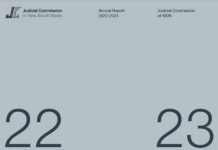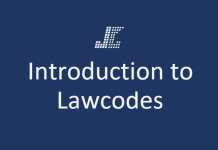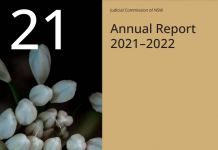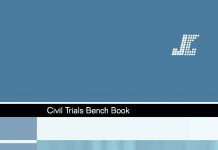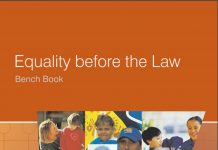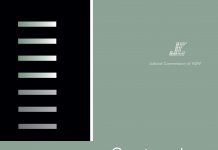The following changes have been incorporated in this Update:
[1-0000] Disqualification for bias
Charisteas v Charisteas [2021] HCA 29 has been added at [1-0020] Apprehended bias as an example of inappropriate contact or communication with a court which a fair-minded lay observer might reasonably consider to compromise judicial impartiality.
[1-0900] Interpreters
It is noted at [1-0930] Implementation that Practice Note SC Gen 21 — Interpreters in Civil Proceedings commenced operation on 4 March 2020 and applies to all civil proceedings commenced after its commencement and to any existing proceedings which the court directs should be subject to the Practice Note, in whole or in part.
[2-0200] Adjournment
A new paragraph [2-0267] Adjournment of motions on a procedural question has been added. The case of Zong v Lin [2021] NSWCA 209 has been included as an example where an application for adjournment on an appeal for interlocutory relief was denied because it was inconsistent with the statutory framework in ss 56–60 of the Civil Procedure Act 2005 to adjourn motions without sufficient reason.
[2-4600] Persons under legal incapacity
Choi v NSW Ombudsman (2021) 104 NSWLR 505 has been added at [2-4630] Tutors/Guardians ad litem, which discusses the valid appointment of a guardian ad litem under s 45(4) and (6) of the Civil and Administrative Tribunal Act 2013.
[4-1500] Privilege
A new paragraph has been added at [4-1588] Privilege in respect of self-incrimination. This discusses the construction of s 128A of the Evidence Act 1995 and the recent decision of Deputy Commissioner of Taxation v Shi [2021] HCA 22 where the majority of the High Court found that where there is an unchallenged finding that information in the privilege affidavit may tend to prove the respondent had committed an offence under an Australian law, the question for the court under s 128A(6) is whether it is satisfied the interests of justice require that the privilege affidavit be disclosed. In the circumstances of this case, a failure to object on the grounds of foreign law meant the question raised by s 128A(6)(b) did not arise. The party making the claim for self-incrimination privilege must set out the basis for the objection.
[5-0200] Appeals except to the Court of Appeal
The case of Huang v Nazaran [2021] NSWCA 243 has been added at [5-0240] Appeals from the Local Court. In that case, it was found that s 70(1)(b) of the Local Court Act 2007 confers a right of appeal to the District Court which is to be made in accordance with Pt 3 of the Crimes (Appeal and Review) Act 2001 “in the same way as such an … appeal may be made in relation to a conviction arising from a court attendance notice” dealt with under Pt 2 of Ch 4 of the Criminal Procedure Act 1986. The appeal is to be dealt with by way of rehearing.
[5-7000] Intentional torts
At [5-7130] Proceedings initiated by the defendant — Who is the prosecutor? the case of Stanizzo v Fregnan [2021] NSWCA 195 has been added. In that case the court noted that neither providing a statement in corroboration of events nor providing a witness statement (of itself) amounts to playing an active role in the conduct of proceedings. Significantly more than that is required. The case of Rock v Henderson [2021] NSWCA 155 has been added, where it was noted that ADVO proceedings can be the subject of a claim for malicious prosecution.
Rock v Henderson has also been added at [5-7190] Damages including legal costs, where the plaintiff claimed by way of damages for malicious prosecution his legal costs for defending ADVO proceedings, lost earnings attributable to the time he was required to attend court, to instruct his lawyers and to review documents, damages for “hurt feelings, distress and mounting anger” and exemplary damages.
[6-1000] The legal framework for the compensation of personal injury in NSW
The figures in this chapter have been updated and are current to 1 October 2021.
[10-0300] Contempt generally
The case of He v Sun [2021] NSWCA 95 has been added at [10-0300] Civil and criminal contempt, as an example of “contumacious disregard of orders” as well as discussing the underlying rationale of sentencing for both civil and criminal contempt. The case Dowling v Prothonotary of the Supreme Court of NSW (2018) 99 NSWLR 229 has also been added with respect to the power to suspend a sentence for contempt.
At [10-0320] Test for contempt, the case of R v The Herald & Weekly Times (Ruling No 2) [2020] VSC 800 has been added in relation to the substantial risk of serious interference to prejudice proceedings. Dowling v Prothonotary of the Supreme Court of NSW has also been added at [10-0410] Scandalising contempt.
New commentary has been added at [10-0420] Misconduct in relation to pending proceedings, including the case of Ulman v Live Group Pty Ltd [2018] NSWCA 338, where the court noted the distinction to be drawn between a contempt arising from conduct that interferes with the administration of justice in a particular case and interference with the administration of justice generally. City of Canada Bay v Frangieh [2020] NSWLEC 81 has been added to [10-0470] Construction of orders.
New commentary regarding breach of suppression orders has been added at [10-0480] Breach of orders and undertakings, which includes the cases of Hinch v Attorney-General (Vic) (1987) 164 CLR 15 and R v The Herald & Weekly Times (Ruling No 2).


